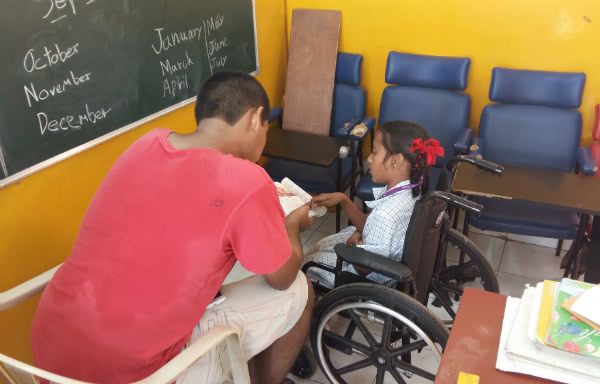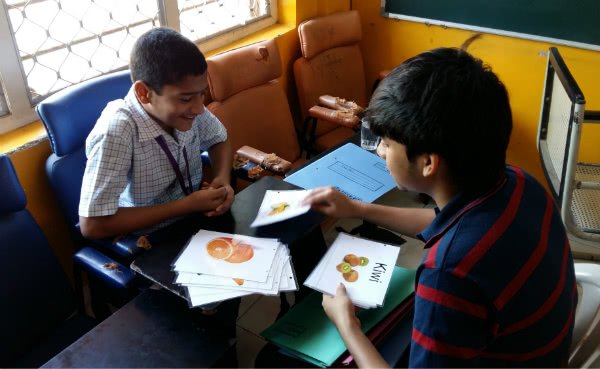Mumbai (AsiaNews)
Rohan Aguiar is a Christian student, in his last year of engineering. At the beginning of Lent he wanted to carry out a corporal work of mercy, and so he went to the Bhabba hospital in the Bandra district of Mumbai, to visit three patients. Despite having lived all his life in the metropolis, where the number of poor people is very high, Rohan says he "was shocked to see there so many people abandoned by society and their families." He gave a packet of biscuits to a man, with whom he stopped to talk. "The patients were delighted by something that is so normal for me. But above all, I understood that they were happy because they had the company of someone to talk to and share their own thoughts with."
On returning home, Rohan called a friend, not a Christian, and together they thought: "Why not put aside a bit of the money we spend on ourselves to give to those less fortunate than ourselves?"

Joel D'lima is a young worker who wanted to make a visit to Cheshire House, in Andheri East (Mumbai suburb). The building houses many long-stay patients suffering from different disabilities. Joel met a man who has lived there for 42 years. "At first I didn't know what to do or say," he says," it was the first time I had visited a place like that. Then I started talking and I asked him if his family came to visit him every now and then. His response moved me: 'You are my family,' he told me.”
These two stories were recounted to AsiaNews by Kevin D'Souza, director of the Opus Dei Centre in Mumbai: "The young people are participating in the formational activities we offer and every month make some gesture in favor of the poorest, like buying them food and taking it to them." D'Souza mentions the pastoral letter for the beginning of Lent sent by Bishop Javier Echevarría, prelate of Opus Dei, in which he said that "this time is an invitation to a profound change and, especially in this Year of Mercy, to repentance, prayer and charity."
"I hope," continues Kevin, "that through meetings with people and catechesis we can create a domino effect. By their example, Rohan and Joel reach many people in the workplace and university. When we are no longer absorbed in ourselves, it is much easier to accept God in our lives and to convert to loving Him more every day."
"Saint Josemaría Escriva often spoke of 'unity of life,' the harmony between the different facets of a person's life. Saint Josemaria was convinced that the hidden work of education is always effective when we treat others as children of God. At the Opus Dei Centre in Mumbai, students are encouraged to work well, not just for themselves, but with an eye to serving others and the common good."
Escriva's teaching that work can be a prayer offered to God is often a new discovery for both students and volunteers. Kevin de Souza concludes by quoting from the Saint's writing: "A son of God cannot entertain class prejudice, for he is interested in the problems of all men. And he tries to help solve them with the justice and charity of our Redeemer."
